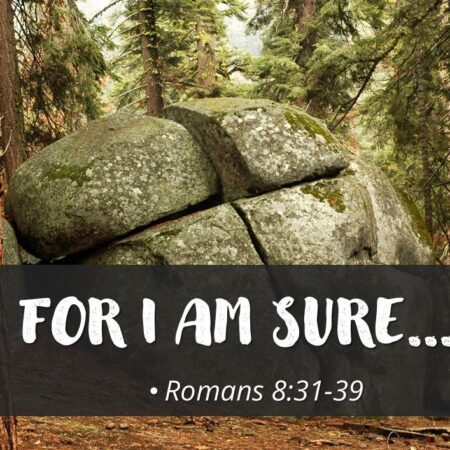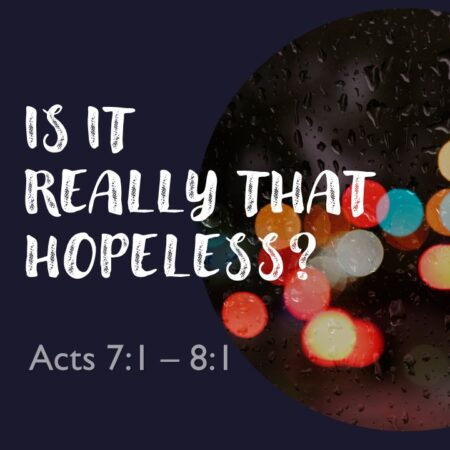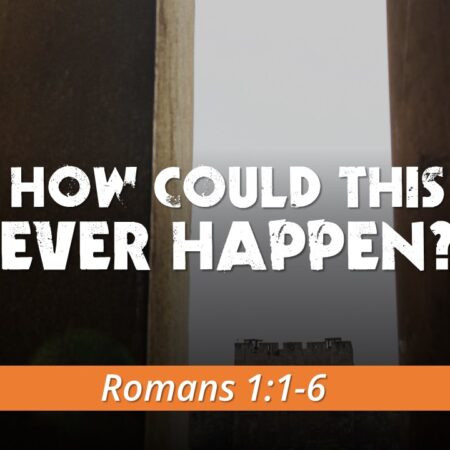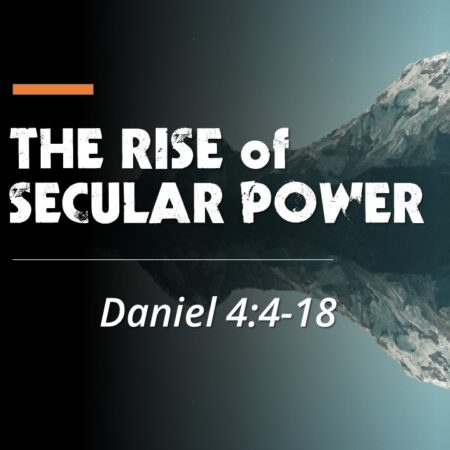Carmen Joy Imes is an associate professor of Old Testament. In her dissertation titled: Bearing YHWH’s Name at Sinai: A Reexamination of the Name Command of the Decalogue” she writes:
”bearing the name of Yahweh is comparable in meaning to the High Priest bearing the names of the tribes of Israel on his breastplate and bearing the name of Yahweh on his forehead. He represents – in both directions – those whose name he bears. Similarly, those who bore the name of Yahweh, like those who bear the name of Christ, represented that name before a watching world. Israel was called to live in the midst of the nations as the people who bore the name of Yahweh and made Yahweh “visible” in the world by walking in his ways and reflecting his character. To bear the name of the Lord was not merely an inestimable privilege and blessing but a challenging ethical and missional responsibility.”
50 years ago, Os Guiness wrote a book titled: “The Dust of Death” with the subtitle: “The sixties counterculture and how it changed America forever.” He republished the book again 2018.
“Western civilization is in decline, and its lead society, the American Republic, is as deeply divided as at any time since just before the Civil War. But why? Is it simply a clash between the “coastals” (New York and California) and the “heartlanders” (the Midwest and the South), or between the “nationalists and populists” (President Trump’s “forgotten people”) and the “globalists” (of the George Soros-like Western elites)?
There are multiple causes of the deep and bitter polarization, but the deepest of all has been almost completely overlooked, and the sixties provided a massive thrust forward in this development.
The ultimate source of the current divisions in America is between those who understand the Republic, and above all freedom, from the perspective of the American Revolution and those who understand the Republic and freedom from the perspective of the French Revolution and its heirs and their ideas.
Stop to reflect on ideas such us “progressivism,” “postmodernism,” “political correctness,” “identity and tribal politics”, “multiculturalism”, “social constructionism,” the “sexual revolution,” the recent rage for socialism, or the leftward drift of the Democratic party and many in the media.
It quickly becomes clear that these ideas have little or nothing to do with 1776 and the American Revolution and its views of freedom. Rather, they are rooted in ideas that come directly or indirectly from 1789 and the French Revolution, and behind it the French Enlightenment and its later heirs such as Karl Marx, Friedrich Nietzsche, Antonio Gramsci, Wilhelm Reich, Herbert Marcuse, Saul Alinsky and Michel Foucault.
Hence the significance of the 1960s and its expression of the “revolutionary faith” that has flowed down from the French Enlightenment and the French Revolution.
The “seismic sixties” was the decade when the radical ideas first broke through into mainstream American thinking and life. Even more importantly, the sixties were the years when many of the seeds of today’s most radical ideas were sown, only to flower more recently in their most destructive forms.”
Antonia Gramsci is such a person we never hear of. He was sitting in jail under Mussolini in the 1920 when he formulated the revolutionary vision into what is known as CULTURAL MARXISM. In his PRISON NOTEBOOKS he argued that
“the timeline should be slow and incremental rather than sudden. It’s goal must be to gain dominance in the “ruling class” through penetrating the “gatekeepers” and the “switch points” in a society – first “demoralizing” the previous leaders of the ruling class, and then slowly replacing them with new revolutionary ideas and narratives. If revolutionaries were to gain “mastery of human consciousness” in this way, they would not need concentration camps and mass murder. Even the KGB would be less important than the winning of the cultural gatekeepers.”
He called this process “The Long March”.
Os Guinness comments on this
“Fifty years later, it is clear that the long march through the institutions has succeeded beyond the wildest dreams of the late sixties. In much of the worlds of colleges and universities, the press and the media, and Hollywood and entertainment, many of the prominent ideas and attitudes reflect the thinking of 1789 and its heirs and not the ideals of 1776. America has been bewitched. The great American Republic is in the process and switching revolutions from the American to the French.
…the sixties sowed the dragon’s seeds that are producing the bitter harvest being reaped today. The roots of those ideas go back far earlier than the sixties, but it was the sixties that gave them the thrust that made them the destructive force they are today.”
Adam Sedgwick, Darwin’s former mentor in natural science at the University of Cambridge, wrote a letter to Darwin after reading ‘the origin of Species’.
In it Sedgwick wrote:
“Passages in your book…greatly shocked my moral taste. There is a moral or metaphysical part of nature as well as a physical. A man who denies this is deep in the mire of folly.
Tis the crown and glory of organic science that it does, through final cause, link material to moral. You have ignored this link.”
Robby Kossmann, a German zoologist who later became a medical professor, wrote an essay in 1880, titled:
“The Importance of the Life of an Individual in the Darwinian World View”.
He declared: “The Darwinian world view must look upon the present sentimental conception of the value of the life of a human individual as an overestimate completely hindering the progress of humanity. The human state also, like every animal community of individuals, must reach an even higher level of perfection, if the possibility exists in it, THROUGH THE DESTRUCTION OF THE LESS WELL ENDOWED INDIVIDUAL, for the more excellent endowed to win space for the expansion of its progeny…..
The state only has an interest in preserving the more excellent life at the expense of the less excellent.”
Richard Weikart in his book “From Darwin to Hitler” subtitled:
“Evolutionary Ethics, Eugenics, and Racism in Germany” wrote:
So, what are the connection between Darwinism and Hitler and are they really all that significant?
First, Darwinism undermined traditional morality and the value of human life. Then, evolutionary progress became the new moral imperative. This aided the advance of eugenics, which was overtly founded on Darwinian principles. Some eugenicists began advocating euthanasia and infanticide for the disabled. On a parallel track, some prominent Darwinists argued that human racial competition and war is part of the Darwinian struggle for existence. Hitler imbibed these social Darwinists ideas, blended in virulent anti-Semitism, and – there you have it: HOLOCAUST.
Madison Grant, president of the New York Zoological Society, in 1916 published a book titled: “The Passing of the Great Race”
“Mistaken regard for what is believed to be divine laws and a sentimental belief in the sanctity of human life tend to prevent both the elimination of defective infants and the sterilization of such adults as are themselves of no value to the community. The laws of nature require the obliteration of the unfit, and human life is valuable only when it is of use to the community or race.
Richard Weikhart summarizes the devastating impact Darwinism has in Europe and in America.
“Leading Darwinists agreed that natural processes could account for all aspects of human society and behavior, including ethics. They denied any possibility of divine intervention, heaped scorn on mind-body dualism, and rejected free will in favor of complete determinism. For them, every feature of the cosmos – including the human mind, society, and morality – could be explained by natural cause and effect. Everything was thus subject to the ineluctable laws of nature. As a corollary to this, science became the arbiter of all truth. Not even ethics or morality could escape the judgments and pronouncements of science.”
1 Corinthians 15:45-49
Thus it is written, “The first Adam became a living being”; the last Adam became a life-giving spirit.
But it is not the spiritual that is first but the natural, and then the spiritual. The first man was from the earth, a man of dust; the second man is from heaven.
As was the man of dust, so also are those who are of the dust, and as is the man of heaven, so also are those who are of heaven.
Just as we have borne the image of the man of dust, we shall also bear the image of the man of heaven.
Matthew 10:28-33
“And do not fear those who kill the body but cannot kill the soul. Rather fear him who can destroy both soul and body in hell. Are not two sparrows sold for a penny? And not one of them will fall to the ground apart from your Father. But even the hairs of your head are all numbered. Fear not, therefore; you are of more value than many sparrows. So everyone who acknowledges me before men, I also will acknowledge before my Father who is in heaven, but whoever denies me before men, I also will deny before my Father who is in heaven.”
Sermons on Christian Life (Page 5)
1 Peter 1:3-21 (open your Bible and let’s read it)
You see that hope is more than mere wishful thinking. Hope is a vital necessity of life. Hope is a gift that God wants to give all of you. When your faith and hope is in God alone, dark pessimism, anxiety about the present and the future, depression and in some cases even suicidal thoughts, will evaporate.
Verse 13
Therefore, preparing your minds for action, and being sober-minded, set your hope fully on the GRACE that will be brought to you at the revelation of Jesus Christ.
There is Hope, LIVING HOPE, found in Christ Jesus alone.
Verse 24-25
All flesh is like grass and all its glory like the flower of grass.
The grass withers, and the flower falls,
BUT THE WORD OF THE LORD REMAINS FOREVER.
And this word is the good news that was preached to you.
George Orwell in his novel 1984 writes:
“We know that no one ever seizes power with the intention of relinquishing it. Power is not a means; it is an end. One does not establish a dictatorship in order to safeguard a revolution; one makes a revolution in order to establish a dictatorship…
The object of power is power.”
In 2006 Richard Dawkins wrote the famous book “The God Delusion”. The idea behind the book is TO EXPLAIN HOW THE IDEA OF GOD IS ONE GRAND DELUSION THAT HAS INFECTED HUMANKIND, AND THE CURE IS ATHEISM.
In chapter 2 we find this opening statement:
“The God of the Old Testament is arguably the most unpleasant character in all fiction; jealous and proud of it; a petty, unjust, unforgiving control-freak; a vindictive, bloodthirsty ethnic cleanser; a misogynistic, homophobic, racist, infanticidal, genocidal, filicidal, pestilential, megalomaniacal, sadomasochistic, capriciously malevolent bully. Those of us schooled from infancy in his ways can became desensitized to their horror.” Richard Dawkins “The God Delusion”
On Page 321:
“As a scientist, I am hostile to fundamentalist religion because it actively debauches the scientific enterprise. It teaches us not to change our minds, and not to want to know exciting things that are available to be known. IT SUBVERTS SCIENCE AND SAPS THE INTELLECT.”
David Berlinski, a secular Jew who holds a Ph.D. from Princeton University had to respond to Richard Dawkins book with a book on his own titled:
“The Devil’s Delusion; Atheism and its scientific Pretensions”
“If science stands opposed to religion, it is not because of anything contained in either the premises or the conclusions of the great scientific theories. They do not mention a word about God. They do not treat of any faith beyond the one that they themselves demand. They compel no ritual beyond the usual rituals of academic life, and these involve nothing more than the worship of what is widely worshipped. Confident assertions by scientists that in the privacy of their chambers they have demonstrated that God does not exist have nothing to do with science, and even less to do with God’s existence.”
“While science has nothing of value to say on the great and aching questions of life, death, love, and meaning, what the religious traditions of mankind HAVE said forms a coherent body of thought. The yearnings of the human soul are not in vain. There is a system of belief adequate to the complexity of experience. There is recompense for suffering. A principle beyond selfishness is at work in the cosmos. All will be well. I do not know whether any of this is true. I am certain that the scientific community does not know that it is false.
Occupied by their own concerns, a great many men and women have a dull, hurt, angry sense of being oppressed by the sciences. They are frustrated by endless scientific boasting. They suspect that as an institution, the scientific community holds them in contempt. They feel no little distaste for those speaking in its name. They are right to feel this way.” David Berlinski “The Devil’s Delusion”
A great many scientists are satisfied that at last someone has said out loud what so many of them have said among themselves:
“Scientific and religious belief are in conflict. They cannot be both right. Let us get rid of the one that is wrong.”
Quote from Peter Atkins, professor of physical chemistry at Oxford University and an ardent atheist.
In the course of an essay Atkins denounces not only theology but poetry and philosophy as well. He observes favorably of himself that scientists “are at the summit of knowledge, beacons of rationality, and intellectually honest”.
It goes without saying, Atkins adds, that “there is no reason to suppose that science cannot deal with every aspect of existence.” Science is after all, the apotheosis of the intellect and the consummation of the Renaissance.”
Dr. Anthony Fauci was interviewed by Michael Caputo on June 17, 2020
“ Well, one of the problems we face in the United States is that unfortunate, there is a combination of an anti-science bias that people are, for reasons that sometimes are, you know, inconceivable and not understandable, they just don’t believe science and they don’t believe authority. So, when they see someone up in the White House, which has an air of authority to it, who’s talking about science, that there are some people who just don’t believe that. And that’s unfortunate because YOU KNOW, SCIENCE IS TRUTH. AND IF YOU GO BY THE EVIDENCE AND BY THE DATA, YOU’RE SPEAKING THE TRUTH.” Dr. Anthony Fauci
There is no LIVING HOPE in science alone. You are still not convinced:
The first premise:
If God does not exist, then everything is permitted.
The second premise:
If science is true, then God does not exist.
The conclusion:
If science is true, then everything is permitted.
In 2007, a number of scientists gathered in a conference entitled:
“BEYOND BELIEF; SCIENCE, RELIGION, REASON, AND SURVIVAL”
The physicist Steven Weinberg delivered an address. He is one of the authors of the theory of electroweak unification, for which he was awarded a Nobel Price. Needless to say, he is a person of great stature among the scientific community. Here is what he said during this address:
“Religion is an insult to human dignity. With or without it you would have good people doing good things and evil people doing evil things. But for good people to do evil things, that takes religion.”
Ryan Holiday is the author of a book titled: “The Obstacle Is The Way”
“There is an old Zen story about a king whose people had grown soft and entitled. Dissatisfaction with this state of affairs, he hoped to teach them a lesson. His plan was simple; He would place a large boulder in the middle of the main road, completely blocking entry into the city. He would then hide nearby and observe their reactions.
How would they respond? Would they band together to remove it? Or would they get discouraged, quit, and return home?
With growing disappointment, the king watched as subject after subject came to this impediment and turned away. Or, at best, tried halfheartedly before giving up. Many openly complained or cursed the king or bemoaned the inconvenience, but none managed to do anything about it.
After several days, a lone peasant came along on his way into town. He did not turn away. Instead he strained and strained, trying to push it out of the way. Then an idea came to him; He scrambled into the nearby woods to find something he could use for leverage. Finally, he returned with a large branch he had crafted into a lever and deployed it to dislodge the massive rock from the road.
Beneath the rock were a purse of gold coins and a note from the king, which said:
“The Obstacle in the path becomes the path. Never forget, within every obstacle is an opportunity to improve our condition.”
As Susan Perlman in an article she wrote for “Jews for Jesus” publication said:
“One might ask, “What do we need pain for? Couldn’t we accomplish the same things with pleasure?”
The answer has to be that in pleasure we focus on ourselves and our feelings and our perceptions, which makes us to be mindful of ourselves and our will to be pleased; whereas pain helps us to focus outside of ourselves, to reach beside ourselves, to find out what’s there. Pleasure tends to make one self-centered, whereas pain tends to make a more noble person, other-centered and, hopefully God-centered.
A crisis becomes an occasion for declension or advance. A self-centered person in a crisis can become more self-centered and wallow in self-pity. God-centered or God-seeking persons can be propelled forward in their quest for meaning.
It is important to know that we are not helpless and we are not hopeless. We can choose to decide how we will deal with pain. We cannot choose whether or not we will have pain, but we can decide whether or not we will ALLOW PROBLEMS TO AFFECT US.
To live is to endure the pressures of life. But we can decide if we are going to let these things press us down or if we are going to let them lift us up.”
David Aikman wrote a book titled” GREAT SOULS” and in it he writes:
“I have always personally been inspired by the lives of great people. It is hard not to be energized by the stories of how individuals have risen above adversity or suffering or have maintained a purity in the face of great temptation. Our age, with its habit of instantly judging a man or woman’s life based on the fragmentary and proverbial sound bite, is often impatient with detail, nuances, depth.”
Chuck Swindoll writes about Joseph:
“Here is one on the list of God’s “greats”…….a life lived for His glory and, equally significant, though he was terribly mistreated, lived high above the all-too-common reactions of rage, resentment, and revenge. Here is one who deliberately chose to overlook unfair offenses, to overcome enormous obstacles, and model a virtue that is fast becoming lost in our hostile age – forgiveness.”
At the outset, Joseph’s life showed little promise – a simple shepherd, twelfth of thirteen children, a dreamer hated by his brothers. So how did he become a man so extraordinary that Moses spent almost fourteen chapters in the Book of Genesis telling his story? Where did Joseph get the qualities of integrity, leadership, and godliness in such measure that they took him from the pit of slavery to prime minister of Egypt?”
Through Joseph
• God explained dreams
• Revealed the future
• Saved Egypt and Israel from starvation
• Demonstrates the depth of love God has for all of us.
Paul is right:
For I am sure that neither death nor life, nor angels nor rulers, nor things present nor things to come, nor powers, not height not depth, nor anything else in all creation, will be able to separate us from the love of God in Christ Jesus our Lord.
Dr. Michael Heiser in his book: “The Unseen Realm” makes this statement:
“The seeds of that failure were sown in the events of the conquest. For whatever reasons – lack of faith or lack of effort, or both – Israel failed to drive out their enemies. They allowed vestiges of the targeted bloodlines to remain in the land in the Philistine cities. They chose to coexist (Judges 1:27-36). The visible Yahweh, the Angel, asks the rhetorical question, “Why would you do such a thing?” and he announces the consequences: “Now I say, I will not drive them out from before you; they will become as thorns for you, and their gods will be a trap for you” (Judges 2:2-3). The name of the place where he uttered these words was thereafter appropriately remembered as Bochim, a Hebrew word that means “weeping”.
John North wrote the foreword to Malcolm Muggeridge’s book titled: “The End of Christendom”
The book is based on Malcolm Muggeridge’s lecture series given in 1978 at the University of Waterloo, Ontario.
“Most of the great universities of the West were founded with the conviction that theology is the queen of the disciplines, and that the key to man’s wholeness is the pursuit of the truth of God through Jesus Christ. Apart from that truth, it was believed, all other expressions of truth are fragmentary and sterile. Now, in the latter part of the twentieth century, that tradition has almost disappeared. Where Jesus Christ and Christian doctrine are the subject of formal study, it is usually as a minor are of Comparative Religion or in a divinity school well segregated from the general student body. Religious enthusiasm among students is an embarrassment; belief in the authority of the Bible and the deity of Jesus Christ is treated as naivety to be enlightened rather than life to be nourished. Scholars in the arts, letters, and sciences who show signs of Christian devotion are likely to be shrugged off as simplistic and eccentric. Coincidentally, truth itself has become devalued, especially in the humanities and social sciences and increasingly in the pure sciences, its consequence and even existence of matter of doubt.
Universities seem to promote fragmentation, in part by undermining general studies in favor of specialized and practical studies, in part by ignoring the signs of decay in the spiritual, moral, and emotional health of the academic community.”
The historian Will Durant made this comment:
“There is not greater drama in human record then the sight of a few Christians, scorned and oppressed by a succession of emperors, bearing all trials with a fearless tenacity, multiplying quietly, but building order, while the enemy generated chaos. Fighting the sword with the Word of God, brutality with hope and at last defeating the strongest empire that history has ever known.
Caesar and Christ had met in the arena, and Christ had won.”
Chuck Swindoll in his commentary on these verses writes:
“During the interval of time between our Lord’s departure from the earth and His return, He is involved in two projects. One; to prepare a place for His children. Two; to prepare His children for a place. He is engaged right now in preparing heaven for His own. That’s what’s happening away from our sight. But on this earth, He is also engaged in preparing us for the life we will live in eternity with Him.”
“Lacking the courage to face something difficult or dangerous” Webster’s Dictionary
“If you describe someone or their behavior as FAINT HEARTED, you mean that they are not very confident and do not take strong action because they are afraid of failing.” COBUILD Advanced English Dictionary
James Madison, drafter of the Constitution, recorder of the Constitutional Convention, author of the Federalist Papers, and 4th president of the United States, was born on a plantation in Virginia.
“It is proper to take alarm at the first experiment on our liberties. We hold this prudent jealousy to be the first duty of citizens, and one of the noblest characteristics of the late Revolution. The freeman of America did not wait till usurped power had strengthened itself by exercise, and entangled the question in precedents. They saw all the consequences in the principle, and they avoided the consequences by DENYING THE PRINCIPLE.” James Madison
Reuters reported:
“As the United States begins reopening its economy, some state officials are weighing whether house arrest monitoring technology – including ankle bracelets or location-tracking apps – could be used to police quarantines imposed on coronavirus carriers. But while the tech has been used sporadically for U.S. quarantine enforcement over the past few weeks, large scale rollouts have so far been held back by a big legal question: Can officials impose electronic monitoring without an offence or a court order?”
More to the point, as the head of one tech company asked,
“Can you actually constitutionally monitor someone who’s innocent? It’s uncharted territory.”
John Whitehead in his book titled: “Battlefield America” with the subtitle: “The war on the American People”, writes:
“The war on terror, the war on drugs, the war on illegal immigration, asset forfeiture schemes, road safety schemes, school safety schemes, eminent domain; all of these programs started out as legitimate responses to pressing concerns and have since become weapons of compliance and control in the police state’s hands.
It does not even matter what the nature of the crisis might be – civil unrest, the nation emergencies, unforeseen economic collapse, loss of functioning political and legal order, purposeful domestic resistance or insurgency, pervasive public health emergencies, and catastrophic natural and human disasters – as long as it allows the government to justify all manner of government tyranny in the so-called name of national security. It’s hard to know who to trust anymore.”
Later in this chapter, John Whitehead goes on to point out the danger James Madison was warning us about 250 years ago:
“in this post 9-11 world, we have been indoctrinated into fearing and mistrusting one another instead of fearing and mistrusting the government. As a result, we’ve been forced to travel this road many, many times with lamentably predictable results each time; without fail, when asked to choose between safety and liberty, Americans historically tend to choose safety.
Failing to read the fine print on such devil’s bargains, “we the people” find ourselves repeatedly on the losing end as the government uses each crisis as a means of expanding its powers at taxpayers’ expense.”
What are the schemes of the devil right now where we are?
Adolf Hitler in “Mein Kampf”
Through clever and constant application of propaganda, people can be made to see paradise as hell, and the other way around to consider the most wretched sort of life.”
Bruce Levine in his book titled: “How TV Zombifies and Pacifies us and subverts Democracy” writes:
“Television is a “dream come true” for an authoritarian society. Those with the most money own most of what people see. Fear-based TV programming makes people more afraid and distrustful of one another, which is good for an authoritarian society depending on a “divide and conquer” strategy. Television isolates people so they are not joining together to govern themselves.
Viewing Television put some in a brain state that makes it difficult to think critically, and it quiets and subdues a population. And spending one’s free time isolated and watching TV interferes with the connection to one’s own humanity, and thus makes it easier to accept an authority’s version of society and life.”
Aldous Huxley in his masterpiece: “Brave New World”
“describes a vision of an unequal, technologically advanced future where humans are genetically bred, socially indoctrinated, and pharmaceutically anesthetized to passively uphold an authoritarian ruling order – all at the cost of our freedom, full humanity, and perhaps also our souls.”
Neil Postman in his book titled: “Amusing Ourselves to Death” explains what Huxley tried to communicate:
“What Huxley teaches is in the age of advanced technology, spiritual devastation is more likely to come from an enemy with a smiling face than from one whose countenance exudes suspicion and hate. In the Huxleyan prophecy, Big Brother does not watch us, by his choice. WE WATCH HIM, by ours. There is no need for wardens or gates or Ministries of Truth. When a population becomes distracted by trivia, when cultural life is redefined as a perpetual round of entertainments, when serious public conversations becomes a form of baby-talk, when, in short, a people become an audience and their public business a vaudeville act, then a nation finds itself at risk; a culture-death is a clear possibility.”
In 1958, Journalist Edward Murrow warned in a speech:
“We have currently a built-in allergy to unpleasant or disturbing information. Our mass media reflect this. But unless we get up off our fat surpluses and recognize that television in the main is being used to distract, delude, amuse, and insulate us, then television and those who finance it, those who look at it, and those who work at it, may see a totally different picture too late.”
Revelation 22:3-7
Then I saw a new heaven and a new earth, for the first heaven and the first earth have passed away, and the sea was no more. And I saw the holy city, new Jerusalem, coming down out of heaven from God, prepared as a bride adorned for her husband. And I heard a loud voice from the throne saying, “Behold, the dwelling place of God is with man. He will dwell with them, and they will be his people, and God himself will be with them as their God. He will wipe away every tear from their eyes, and death shall be no more, neither shall there be mourning, nor crying, nor pain anymore, for the former things have passed away.
And he who was seated on the throne said: “Behold, I am making all things new.” Also he said, “Write this down, for these words are trustworthy and true.” And he said to me; “It is done! I am the Alpha and the Omega, the beginning and the end. To the thirsty I will give from the spring of the water of life without payment. The one who conquers will have this heritage, and I will be his God and he will be my son.
Jordan Peterson wrote the bestseller “12 Rules for Life” – An Antidote to Chaos. It was published in 2018
Peterson’s book became an incredible bestseller because he was able to take ETERNAL TRUTHS AND APPLY THEM TO OUR MODERN PROBLEMS.
The foreword was written by Dr. Norman Doidge, MD, who authored the book titled ”THE BRAIN THAT CHANGES ITSELF”.
Let me read a short excerpt from this foreword that will lead us back to the Biblical text in a few minutes:
“Rules? More Rules? Really? Isn’t life complicated enough, restricting enough, without abstract rules that don’t take our unique, individual situations into account? And given that our brains are plastic, and all develop differently based on our life experiences, why even expect that a few rules might be helpful to us all?
People don’t clamour for rules, even in the Bible…..as when Moses comes down the mountain, after a long absence, bearing the tablets inscribed with ten commandments, and finds the children of Israel in revelry. They’d been Pharaoh’s slaves and subjects to these tyrannical regulations for four hundred years, and after that Moses subjected them to the harsh desert wilderness for another forty years, to purify them of their slavishness. Now, free at last, they are unbridled, and have lost all control as they dance wildly around an idol, a golden calf, displaying all manner of corporeal corruption.
“I’ve got some good news…….and I’ve got some bad news,” the lawgiver yells to them. “Which do you want first?”
“The good news!” the hedonists reply.
“I got Him from fifteen down to ten!”
“Hallelujah!” cries the unruly crowd. “And the bad?”
“Adultery is still in.”
So, rules there will be – but, please, not too many. We are ambivalent about rules, even when we know they are good for us. If we are spirited souls, if we have character, rules seem restrictive, an affront to our sense of agency and our pride in working out our own lives. Why should we be judged according to another’s rule?
And judged we are. After all, God didn’t give Moses “The Ten Suggestions,” he gave Commandments; and if I’m a free agent, my first reaction to a command might just be that nobody, not even God, tells me what to do, even if it’s good for me. But the story of the golden calf also reminds us that without rules we quickly become slaves to our passions – and there’s nothing freeing about that.
And the story suggests something more: unchaperoned, and left to our own untutored judgment, we are quickly to aim low and worship qualities that are beneath us – in this case, an artificial animal that brings out our own animal instincts in a completely unregulated way. The old Hebrew story makes it clear how the ancient felt about our prospects for civilized behavior in the absence of rules that seek to elevate our gaze and raise our standards.
One neat thing about the Bible story is that it doesn’t simply list its rules, as lawyers or legislators or administrators might; it embeds them in a dramatic tale that illustrates why we need them, thereby making them easier to understand.”
Francis Schaeffer in his book: “The God Who Is There”
“The Christian is to resist the spirit of the world. But when we say this, we must understand that the world spirit does not always take the same form. So the Christian must resist the spirit of the world IN THE FORM IT TAKES IN HIS OWN GENERATION. If he does not do this, he is not resisting the spirit of the world at all. This is especially so for our generation, as the forces at work against us are of such a total nature. It is our generation of Christians more than any other who need to heed these words attributed to Martin Luther:
“If I profess with the loudest voice and clearest exposition every portion of the truth of God except precisely that little point which the world and the devil are at that moment attacking, I am not confessing Christ, however boldly I may be professing Christ. Where the battle rages, there the loyalty of the soldier is proved, and to be steady on all the battlefields besides, is mere flight and disgrace if he flinches at that point.”
God highlighted 3 specific and important things for Joshua to do:
1. The Law was not to depart out of Joshua’s mouth. In other words, Joshua was to talk about the book of the Law.
2. He was to meditate on it day and night. In other words, Joshua had to reason out what Moses wrote down within it’s context.
3. Joshua was to practice the commands in his historic space-time situation.
About 40 years ago, Francis Schaeffer and C. Everett Koop, the former surgeon general of the Unites States, gave a lecture in which Francis Schaeffer made an astounding prediction. Ravi Zacharias attended this lecture and recalls it in his book titled WHY JESUS?
“At that talk, Schaeffer made a comment that caught me by surprise.
He said that the day was coming in the West when the name of Jesus
would not be recognized by the average young person; and if it were recognized, not a single historical fact about him would be known.
At that time I found this statement a bit hard to swallow and wondered
if he had said it just to be provocative. But a generation later, it is appearing to be quite true.”
Let me quote one more time Ravi Zacharias here:
“When you look back in the Old Testament, you see that in spite of all the instruction about worship, often repeated, and astounding loss nevertheless had occurred. All that the priests could control, they did. All that the ceremonies could control, they used to their advantage. And when a select or elect few control and sell salvation, the victim is always the common person. No religion is spared here.
One would think that this New Spirituality has brought about a new Eden and that its river flow peacefully and calmly. But it is not so…In fact, it has never been so. Few arenas lend themselves to abuse and loss as that of religion.”
Ravi Zacharias writes:
“It has been the beautiful teaching of the Word of God across time that has given this nation its ethos. It was this Word of God that put a song into the hearts of slaves during their darkest days. It was this Word of God that gave William Wilberforce in England the conviction and the courage to speak out against slavery and sustained him in the long struggle to see it abolished in the British Commonwealth. It was this Word of God that inspired Martin Luther King Jr. in his pursuit of civil liberty…And the same Word of God has transformed the life of many a prisoner, and of many others I could tell of, from some of the darkest parts of the world where the light of God’s Word has shone. Any nation that neglects teaching the sacredness of life and the family does so at its own peril. Any nation that sanctions the removal of God’s boundaries will destroy its own.”
Ravi Zacharias’ commentary on John 18 says:
“If there is any passage of Scripture that accurately describes our modern-day contempt for truth, our attachment to power, and our voluntary surrender to culture, it is this. It is not accidental that religious authorities, political appointees, and cultural symbols have come together to crucify him once again in our day. Barabbas was released…a cultural practice was fulfilled. “We have a law” … Political correctness was enjoyed. “he claims to be the Son of God…kill him” …all at the behest and with the blessing of religion. The irony is that he wanted to be owned by none of the three: culture, politics, or religion.”
In 1933 a group of 34 liberal humanists in the United States defined the philosophical and religious principles that seemed to them FUNDAMENTAL. They drafted humanist manifesto I which for its time was a radical document. It was concerned with expressing a general religious and philosophical outlook that REJECTED ORTHODOX AND DOGMATIC POSITIONS and provided meaning and direction, unity and purpose to HUMAN LIFE. It was committed to REASON, SCIENCE, AND DEMOCRACY.
HUMANIST MANIFESTO I
“The time has come for widespread recognition of the radical changes in religious beliefs throughout the modern world. The time is past for mere revision of traditional attitudes. Science and economic change have disrupted the old beliefs. Religions around the world labor with the task of coming to terms with new conditions created by a vastly increased knowledge and experience. In every field of human activity, the vital movement is now in the direction of a candid and explicit humanism. In order that religious humanism may be better understood we, the undersigned, desire to make certain affirmations which we believe the facts of our contemporary life demonstrate.”
“Today, man’s larger understanding of the universe, his scientific achievements, and his deeper appreciation of brotherhood, have created a situation which requires a new statement of the means and purposes of religion. Such a vital, fearless, and frank religion capable of furnishing adequate social goals and personal satisfaction my appear to many people as a complete break with the past. While this age does owe a vast debt to traditional religions, it is none the less obvious that any religion that can hope to be a synthesizing and dynamic force for today MUST BE SHAPED FOR THE NEEDS OF THIS AGE. To establish such a religion is a major necessity of the present. It is a responsibility which rests upon this generation. We therefore affirm the following:”
“The humanists are firmly convinced that existing acquisitive and profit-motivated society has shown itself to be inadequate and that a radical change in methods, controls, and motives must be instituted. A socialized and cooperative economic order must be established to the end that the equitable distribution of the means of life be possible. The goal of humanism is a free and universal society in which people voluntarily and intelligently cooperate for the common good. Humanists demand a shared life in a shared world.”
Paul Kurtz and Edwin H. Wilson wrote the preface to the manifesto II:
“As we approach the twenty first century an affirmative and hopeful vision is needed. Faith, commensurate with advancing knowledge, is also necessary. In the choice between despair and hope, humanists respond in this Humanist Manifesto II with a positive declaration for times of uncertainty.
As in 1933, humanists still believe that traditional theism, especially faith in the prayer-hearing God, assumed to love and care for persons, to hear and understand their prayers, and to be able to do something about them, is an UNPROVEN AND OUTMODED FAITH. Salvationism, based on mere affirmation, still appears as harmful, diverting people with false hopes of heaven hereafter; REASONABLE MINDS LOOK TO OTHER MEANS FOR SURVIVAL.”
Among the revised principles of Humanist Manifesto II, you find statements like this:
• “We find insufficient evidence for belief in the existence of the supernatural.”
• “Promises of immortal salvation or fear of eternal damnation are both illusory and harmful.
• “Modern science discredits such historic concepts as the ‘ghost in the machine’ and the ‘separable soul’.”
• Humane societies should evaluate economic systems not by rhetoric or ideology, but by whether or not they increase economic wellbeing for all individuals and groups, minimize poverty and hardship, increase the sum of human satisfaction, and enhance the quality of life.”
It even gets better: Principles 12-17 illustrate humanism’s missionary zeal. It is bent upon the creation of a global society.
“We deplore the division of humankind on nationalist grounds. We have reached a turning point in human history where the best option is to transcend the limits of national sovereignty and to move toward the building of a world community in which all sectors of the human family can participate.
The problems with economic growth and development can no longer be resolved by one nation alone; they are worldwide in scope. It is the moral obligation of the developed nations to provide – through an international authority that safeguards human rights – massive technical, agricultural, medical, and economic assistance, including birth control techniques, to the developing portions of the globe.
World poverty must cease. Hence extreme disproportions in wealth, income, and economic growth should be reduced on a worldwide basis.”
Ravi Zacharias
“The Camera had won the battle OF SEEING AND BELIEVING. The world, and America in particular, was foundationally transformed. The zeal of young, combined with the material means that their parents had fought to give them and the invasiveness of the medium of television, made for a powerful overthrow of the reigning worldview.
The battle was carried into the universities, whose own academic experts were flaying America, and the intelligentsia hit hard at political demagoguery, as they called it.
…And all this was reflected in the arts as rock stars changed the mathematical rules of music and discord became entertainment. Noise became deafened to reason.
…At the time, most people failed to understand the power of the media to change their views and reshape their thinking. Instead of viewing the world THROUGH the medium of television, they allowed the medium TO DEFINE THE WORLD FOR THEM.”
In the same book “WHY JESUS” Ravi goes on to explain:
“There is a war raging. It is the battle for thought and belief through a weapon of mass deconstruction. In that battle, it is not firepower we need to fear as much as it is electronic power. From the conscious to the subconscious we are in its grip. From wars in different lands to battles for moral acceptability, the television set has won the day. I stress this because I believe that almost none of the NEW SPIRITUALITIES would be so pervasive if it were not for the genius and built-in distortion of television. It reinforces what WE WANT TO BELIEVE, and if what WE WANT TO BELIEVE is WHAT WE ARE TOLD TO BELIEVE THROUGH THE MEDIUM, no amount of logic or argument can shake that conviction. Whichever way you want to look at it, television – and now viral media – is the SHAPER OF EVERYTHING WE THINK AND BELIEVE.”
The word translated “healthy” is “HAPLOUS” which means “motivated by singleness of purpose so as to be open and above board, single, without guile, sincere, straightforward.”
Tom Landry, the legendary coach of the Dallas Cowboys and a committed follower of Jesus, said: “The job of a coach is to make men do what they don’t want to do, in order to be what they’ve always wanted to be.”
Blaise Pascal, the French mathematician and philosopher, wrote:
“There are only three kinds of persons; those who serve God having found him; others who are occupied in seeking him, not having found him; while the remainder live without seeking him and without having found him. The first are reasonable and happy; the last are foolish and unhappy; those between are unhappy and reasonable.”










